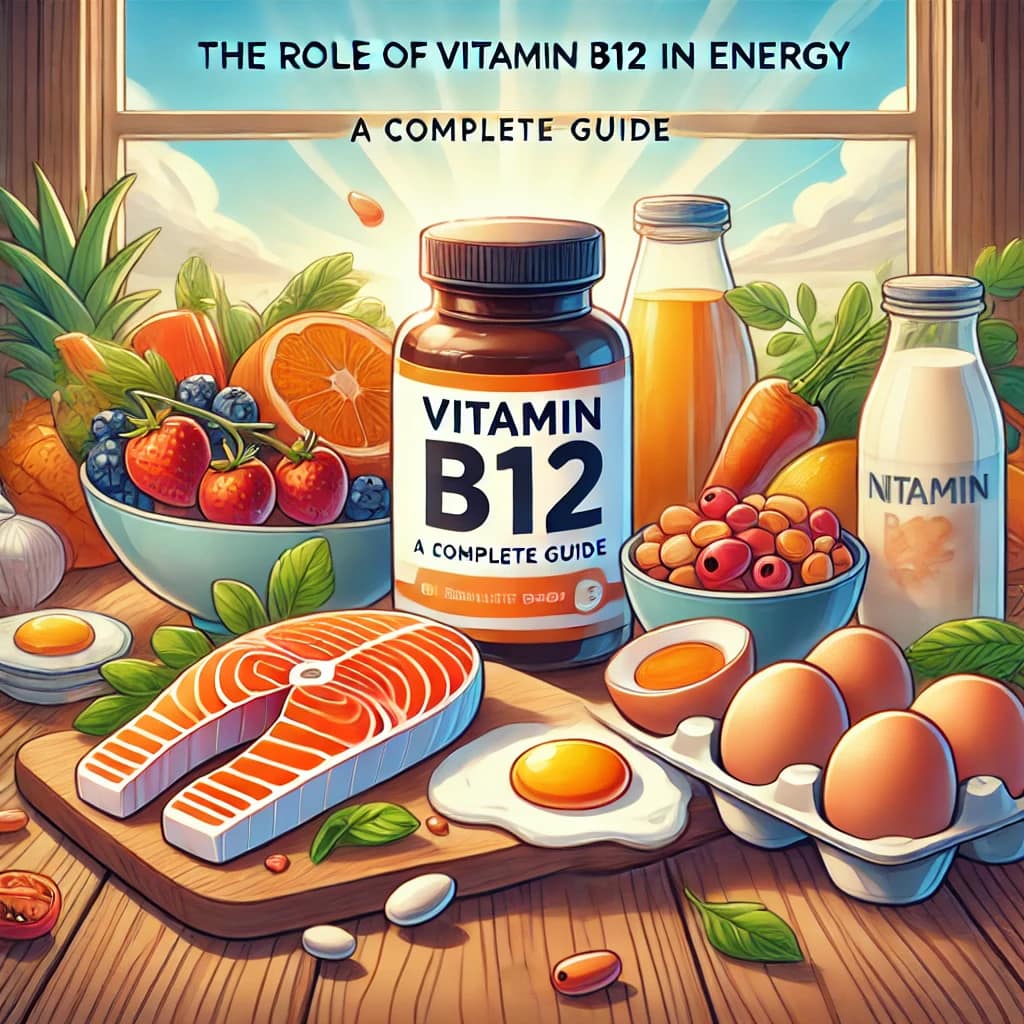Vitamin B12 plays a crucial role in energy production and overall health. Whether you’re feeling fatigued or looking to optimize your diet, understanding this vitamin’s importance is essential.
What Is Vitamin B12?
Vitamin B12, also known as cobalamin, is a water-soluble vitamin essential for red blood cell formation, DNA synthesis, and nervous system function. Without enough B12, your body can’t produce healthy red blood cells, leading to fatigue and weakness.
How Vitamin B12 Boosts Energy Levels
B12 helps convert the food you eat into glucose, which your body uses as energy. It also supports the nervous system, ensuring efficient communication between your brain and muscles.
Key functions include:
- Aiding in red blood cell production to carry oxygen throughout the body.
- Supporting metabolism for energy release.
- Reducing symptoms of fatigue and lethargy.
Top Natural Sources of Vitamin B12
1. Salmon
Salmon is a rich source of B12 and omega-3 fatty acids, promoting heart and brain health.
Serving tip: Grill or bake salmon for a delicious and nutrient-packed meal.
2. Eggs
Egg yolks are packed with B12 and are an excellent choice for breakfast.
Quick recipe: Enjoy boiled eggs or scramble them with spinach for an added boost.
3. Dairy Products
Milk, cheese, and yogurt are great sources of B12 for non-meat eaters.
Pro Tip: Choose fortified dairy alternatives if you’re lactose intolerant.
4. Fortified Cereals
Many cereals are enriched with B12, making them a convenient option for vegetarians.
Suggestion: Look for whole-grain cereals for added fiber.
Who Is at Risk of B12 Deficiency?
Certain groups are more prone to B12 deficiency, including:
- Vegetarians and vegans (as B12 is primarily found in animal products).
- Older adults may absorb less B12 from food.
- Individuals with digestive disorders like Crohn’s disease.
Symptoms of deficiency include:
- Persistent fatigue.
- Weakness or dizziness.
- Pale or jaundiced skin.
Should You Take a B12 Supplement?
If you’re not getting enough B12 through your diet, supplements can help. They’re available in various forms, including tablets, capsules, and injections.
When to consider supplements:
- If you follow a vegan or vegetarian diet.
- If you have a diagnosed deficiency.
- During pregnancy or breastfeeding (consult your doctor first).
Daily Requirements of Vitamin B12
The recommended daily intake for adults is 2.4 mcg. This amount is generally achievable with a balanced diet. However, some individuals may need higher amounts due to specific health conditions or dietary limitations.
Conclusion:
Vitamin B12 is essential for energy production, brain health, and overall well-being. By incorporating B12-rich foods into your meals or using supplements when necessary, you can maintain your energy levels and improve your health. Start today by applying these practical tips to your routine and feel the difference.
